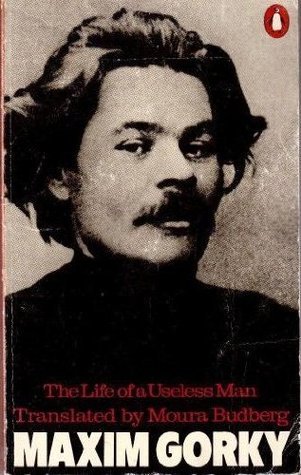What do you think?
Rate this book


288 pages, Paperback
First published January 1, 1907

"روسيا العظمى تتهاوى، الشر منتشر في بلدنا والرعب يقض مضاجع الناس الذين يتعرضون للاضطهاد بسبب العوز والحاجة، أعمى الحسد قلوبهم، الروس الصبورون واللطفاء يموتون ويولد عوضاً عنهم قبائل انزاح الخير من قلوبها واعمى الشر و الجشع بصيرتها، باتوا اشبه بالذئاب والحيوانات الوحشية، الإيمان يضمحل، الناس خلف أسوار هذه القلعة يعيشون في تخبط، أما أصحاب القلوب المريضة فيستهدفون العزل و يأسرونهم بغواية من الشيطان، يجرونهم نحو الجريمة ومخالفة قوانينك يا سيدنا.
قال العجوز متذمراً : سيدنا؟ هذا اللقب نطلقه على القساوسة.
ألم يعجبك البيان؟
لا، يجب أن نغير فيه.
كيف نغيره؟
يجب أن نقول له مباشرةً، أن هناك ثورة عامة تنتشر بين الناس بسبب أوضاع الحياة وانت الذي اصطفاك الإله لتخرجنا مما نحن فيه. "
" استمع يافسي منصتاً لكلام العجوز ومحدقاً في وجهه، لاحظ العجوز احترامه الزائد فقال متذمراً : لاحظت أن فيك خصلة بشرية. سكت هنيهة وتابع حديثه قائلاً : ولكن هذه الخصلة موجود حتى في الكلاب."
" استأنف ساشا حديثه قائلا : أنا أعرف أعدائي، إنهم انتم ايها النبلاء، تريدون أن تكونوا نبلاءً حتى وأنتم جواسيس، الكل يبغضكم ويمقتكم أينما حللتم نساءً ورجالاً جواسيسَ وكتاباً، لكنني أعرف كيفية التعامل معكم يا من تنتمون إلى الطبقة الراقية، أعرف طريقة ما، أعرف كيف أدمركم!.
قال مكلاكوف وهو يضع يديه في جيوبه : هذه هي النقطة المثيرة للاهتمام لا كلماتك الهستيرية.
إذن هذا ما يثير اهتمامك، حسناً أنا سأخبرك!
بدا أن ساشا أراد الجلوس لأنه اخذ يترنح مثل البندول، نظر حوله وهو يتكلم دون توقف ويلهث من فرط سرعته في الحديث : من نظم شؤون حياتنا؟ إنهم انتم أيها النبلاء، من أفسد الإنسان الجميل؟ من الذي جعله وحشاً قذراً مريضاً؟ انهم انتم أيها النبلاء، لذا فالواجب علينا أن نقلب عليكم الحياة رأسا على عقب، سنفتح جروحنا وسنغرقكم في دمائنا، سنغرقكم في قيء من سممتم حياتهم، اللعنة عليكم! حانت ساعة إعدامكم واجتثاث أرواحكم من هذه الحياة. كل من شوهتم اجسادهم سيثورون ضدكم وسيخنقونكم ويسحقونكم سحقاً، نعم هذه نهايتكم، هل سمعت عما حدث في بعض المدن حين وضعوا رؤوس اسيادهم على اكتافهم؟. رجع ساشا إلى الوراء، اتكأ على الحائط مد ذراعيه إلى الأمام وانفجر يضحك
نظر مكلاكوف إلى الرجال من حوله وسألهم ضاحكاً : هل فهمتم كلمة مما قاله؟ "